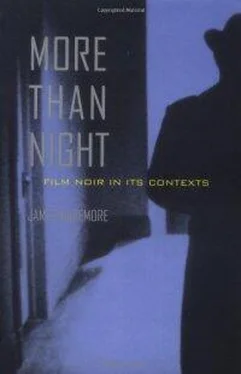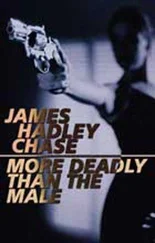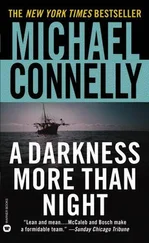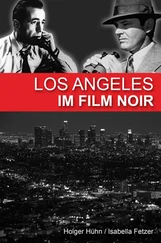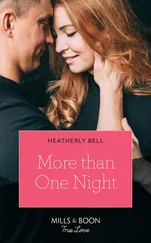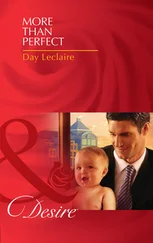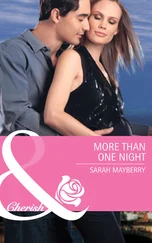A character like Huff is a far cry from Raymond Chandler's Philip Marlowe, just as the mass-produced Nirdlinger home is quite different from the resplendent Sternwood mansion described at the beginning of The Big Sleep. (Nirdlinger works for an oil company, whereas Sternwood owns one.) Notice, however, that both dwellings have the same heraldic pretensions, and both narrators know the cost of everything. Given that Cain was under contract to another studio and could not be hired to adapt Double Indemnity, Chandler was a logical substitute (he even had the same publisher and eventually the same literary agent as Cain). But Chandler was a less flat, more spectacular prose stylist, and when he wrote about California, he kept an older world in mind.
Although he was born in Chicago, Chandler was raised amid the property-holding Anglo-Irish of Waterford and London, and he was educated at Dulwich Preparatory School. In a fascinating series of notes on "American and English style" written in the 1940s, he claimed that "all the best American writing has been done by men who are, or at some time were, cosmopolitans. They found [in the United States] a certain freedom of expression, a certain richness of vocabulary, a certain wideness of interest. But they had to have European taste to use the material" (quoted in MacShane, Life of Raymond Chandler, 84). When he made this observation, he was obviously thinking of his own style, which is the product of an aestheticized, classically trained sensibility coming into contact with a demotic vocabulary. Notice, too, that all of his detective novels depend upon the narrative voice of Philip Marlowea synthesis of tough guy and cultural aristocrat, who views Los Angeles almost like a visitor from abroad. As Jacques Barzun observes, even Marlowe's name connotes "Englishness, Elegance, and Establishment." 60
Chandler was not exactly a cosmopolitan, but he was not a typical American either. To his English publisher, he wrote, "It is possible that like [Max] Beerbohm I was born a half a century too late, and that I too belong to an age of grace. I could so easily have become everything our world has no use for. So I wrote for Black Mask. What a wry joke" (quoted in MacShane, Life of Raymond Chandler, 76). His novels have this same wistful tone, suggesting an intense nostalgia for Edwardian gallantry. Describing his attitude toward modern life, he once remarked, "I like people with manners, grace, some social intuition, and education slightly above the Reader’s Digest level, people whose pride of living does not express itself in their kitchen gadgets and their automobiles. . . . although apart from that I should prefer an amiable drunk to Henry Ford" (quoted in MacShane, Life of Raymond Chandler, 77). He did not find many such people in California, and for that reason among others, his work was suffused with loneliness and romantic melancholy.
Even so, Chandler was the greatest of all writers about Los Angeles. He bestowed style upon the place, enabling his readers to enjoy the flanerie of driving past its beaches, mountainsides, and vividly contrasting neighborhoods. This experience, moreover, was always tinged with a deliciously Baudelarian atmosphere of decadence, corruption, and decay; hence a novel like The Big Sleep sometimes recalls T. S. Eliot's darkest, most reactionary visions of London. Everywhere Marlowe looks, he sees Jews, homosexuals, gangsters, and various pretenders or arrivistes from the Midwest. Even the domestic architecture strikes him as fake. "About the only part of a California house you can't put your foot through," he observes when he breaks into Arthur Gwynne Geiger's Laurel Canyon bungalow, "is the front door." 61
Although Chandler made his living in the popular media, his novels were grounded in a familiar high-modernist belief that the modern world is cheap, insubstantial, and destructive of true culture. His contempt for the urban wasteland was reinforced by his personal frustration with capitalist America. He became a famous novelist late in his life, not long after his career as an executive in the California oil business failed, and he had an instinctive resentment of advertising agencies, slick-paper magazines, or any modernized organization that could pay for his skills. Thus when he came to work in Hollywood, he immediately commented upon "the strange psychological and spiritual kinship between the operations of big money business and the rackets," and he noted that the studio system was designed to "destroy the link between the writer and his subconscious" (quoted in MacShane, Life of Raymond Chandler, 123). With relatively little modification, this was exactly the way Philip Marlowe talked. Marlowe was, after all, a symbol of what Mike Davis describes as "the small businessman locked in struggle with gangsters, corrupt police and the parasitic rich (who were usually his employers as well)a romanticized simulacrum of the writer's relationship to studio hacks and moguls" (38).
Not surprisingly, the Marlowe-Chandler voice was greatly modified in Hollywood movies of the 1940s, especially in Howard Hawks's amusingly sinister but quite apolitical adaptation of The Big Sleep (1945). However, that voice can be heard everywhere in the film version of Double Indemnitynot least in the affectionate banter between Walter Neff and Barton Keyes, who resemble a couple of writers employed by a film factory. These two men's conversations about the Dietrichson case are similar to a story conference at Paramount, and Walter's attempt to cheat the insurance company is not unlike Chandler's and Wilder's attempt to put one over on the censors and the studio. The implicit parallels between the insurance game and the movies were in fact so amusing to Wilder that he and art director Hal Pereira subtly reinforced them in the set designs: the interior of Walter Neff’s apartment was modeled after the one Wilder himself had occupied at the Chateau Marmont when he began working for Paramount; and the offices of the "Pacific All-Risk Insurance Company" were copied almost exactly from the home offices of Paramount Pictures in New York City.
Chandler regarded Cain as a "faux naif 1' and a "Proust in greasy overalls" (quoted in MacShane, Life of Raymond Chandler , 101). Perhaps for that reason, he and Wilder slightly raised the level of the novella's social atmosphere, making the sex less earthy and the characters more verbally clever. The leading players in the film are literate in a vaguely Hollywoodish way, rather like the sort of people one might encounter at the writer's table in a studio commissary: they use language as a weapon or a mode of seduction, they have a gift for repartee, and their longer speeches have a distinctive cadence and rhetorical flair. Except for the moments of Hitchcockian suspense (such as the scene in which the getaway car fails to start, or the scene in which Keyes shows up at Neff's apartment while Phyllis is there), all the best dramatic effects result from the dialogue. Walter occasionally uses a salesman's corny patter ("That's Neff with two fs, like in Philadelphiayou know the story."
' 'What story?" "The Philadelphia Story''), but he also composes the world's most intriguing interoffice Dictaphone message. His narration is filled with self-deprecating wisecracks, and he has a writer's sensitivity to images, as when he walks around the Dietrichson living room, noting the stale cigar smoke, the dust motes, and "a bowl of those little red goldfish on a table behind the davenport." Partly because of this language, he sometimes resembles Philip Marlowea romantic loner who is sentimentally attached to lovable eccentrics like Keyes or innocent waifs like Lola Dietrichson. The difference, of course, is that he lacks Marlowe's independence, high intelligence, and impossibly heroic integrity. In the final analysis, Walter is little more than a cog in a bureaucracy, and he cannot resist the blandishments of sex and money. With less talent and better looks, he would be the twin of failed writer Joe Gillis in Sunset Boulevard.
Читать дальше
